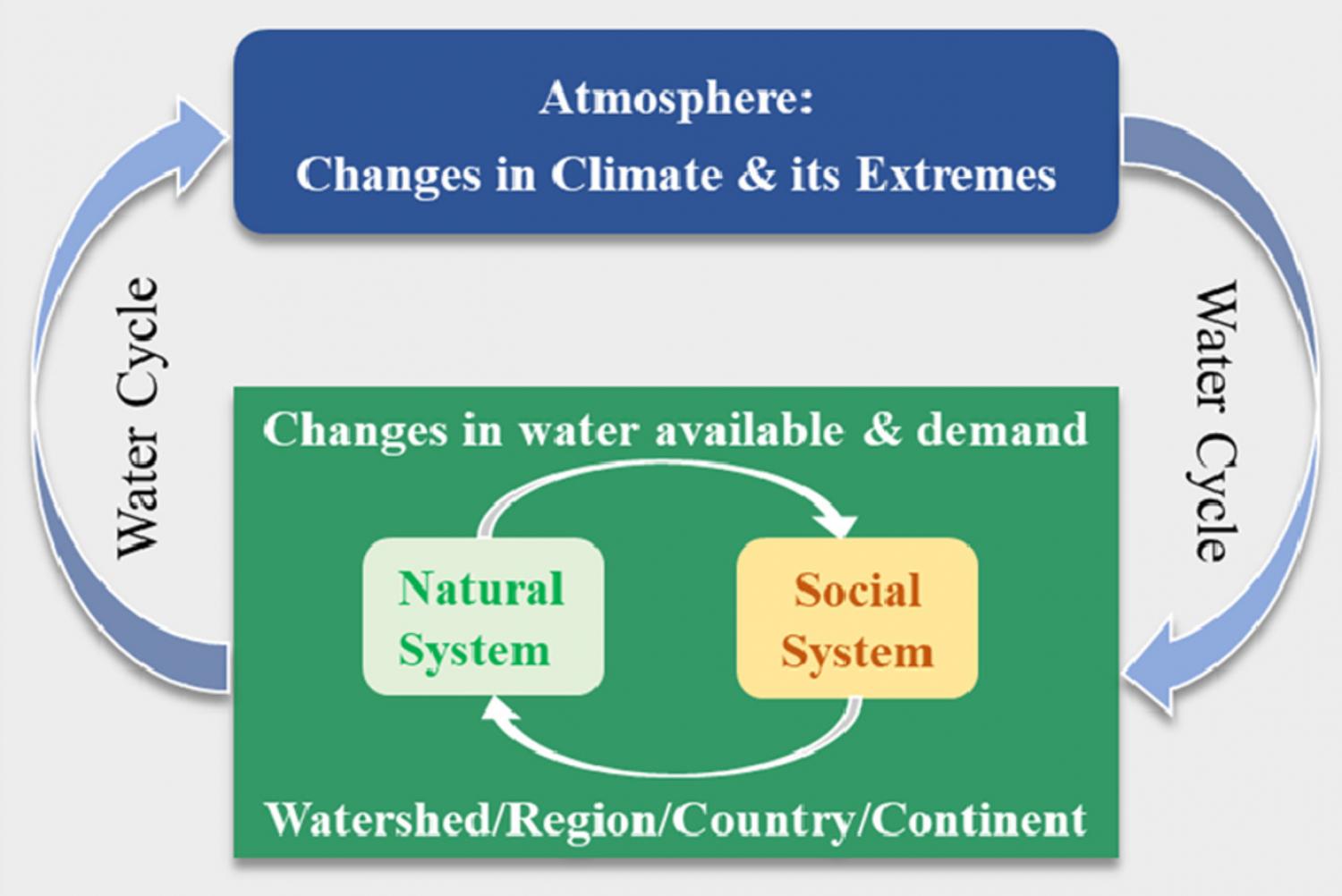
Water is the fundamental natural resource that supports life, ecosystems and human society. Thus studying the water cycle is important for sustainable development. In the context of global climate change, a better understanding of the water cycle is needed. This study summarises current research and highlights future directions of water science from four perspectives: (i) the water cycle; (ii) hydrologic processes; (iii) coupled natural-social water systems; and (iv) integrated watershed management. Emphasis should be placed on understanding the joint impacts of climate change and human activities on hydrological processes and water resources across temporal and spatial scales. Understanding the interactions between land and atmosphere are keys to addressing this issue. Furthermore systematic approaches should be developed for large basin studies. Areas for focused research include: variations of cryosphere hydrological processes in upper alpine zones; and human activities on the water cycle and relevant biogeochemical processes in middle-lower reaches. Because the water cycle is naturally coupled with social characteristics across multiple scales, multi-process and multi-scale models are needed. Hydrological studies should use this new paradigm as part of water-food-energy frontier research. This will help to promote interdisciplinary study across natural and social sciences in accordance with the United Nation's sustainable development goals.
